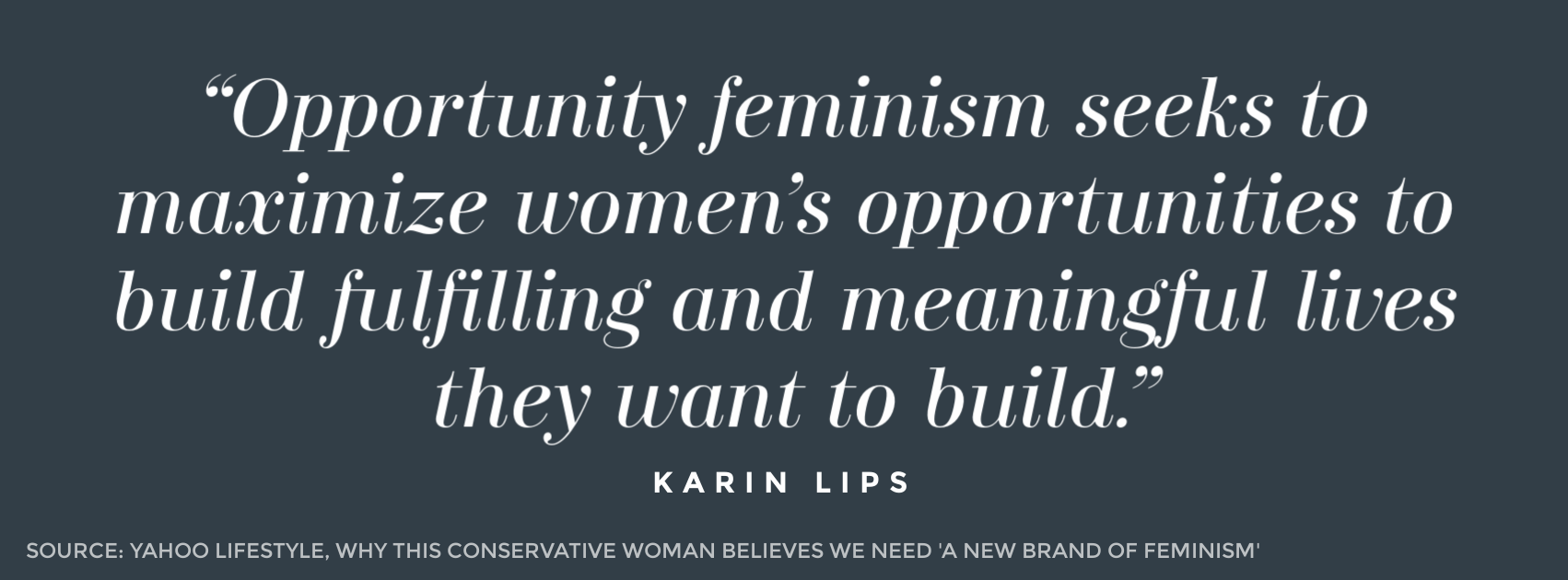‘Bossy’ Ban: The Main Problem with Feminism Today
This article originally appeared in HuffPost.
The women we are honoring during Women’s History Month fought for our country, led political movements and started businesses. Many did so in the face of threats to their own safety and vicious personal attacks. Being called bossy would have been the least of their worries.
But what is the latest effort launched to encourage girls to achieve? Sheryl Sandberg, Facebook COO and author of Lean In: Women, Work, and the Will to Lead, and Anna Maria Chávez, Chief Executive Officer of the Girl Scouts, have partnered to launch a campaign to ban an adjective — bossy. Rather than trying to ban words that some might find offensive, women’s groups should promote leadership skills, including developing a thick skin.
It’s easy to dismiss this “ban bossy” public service campaign as just an overzealous effort to help girls or even a shrewd business move to sell more copies of Sandberg’s book, but this campaign is indicative of one of the main problems with feminism today — the idea that women are victims in need of more and more special protection.
What’s the justification for banning bossy? Besides anecdotes from Sandberg, Chávez and other women about having hurt feelings after being called “bossy” as little girls, the campaign relies on outdated information about girls today. The Leadership Tips for Girls handout features an alarming statistic — “By middle school, girls are 25 percent less likely than boys to say they like taking the lead.”
This statistic comes from data collected over 15 years ago, from 1992 to 1997. With all of the efforts to advance girls in school, is it fair to rely on this statistic from 15 years ago as a centerpiece of the campaign?
The handout laments uncertainty about the role of women in society. Tip #9 claims, “You’re growing up in a world that’s still confused about how powerful it wants girls to be.” But this is an effort geared toward girls in the U.S., and it is hard to see how our education system is systematically sending the message that girls ought not aspire as high as boys.
After all, those same girls who supposedly are falling behind in elementary school make up a majority of college students and earn a majority of bachelor’s degrees. They also benefit from programs created to encourage more girls to go into the fields of science, technology, engineering and math. And the White House Council on Women and Girls was established in 2009 “to ensure that each of the agencies in which they’re charged takes into account the needs of women and girls in the policies they draft, the programs they create, the legislation they support.” There is no counterpart focused on men and boys.
The bigger issue in the U.S. might be that women are unsure themselves of exactly how powerful they want to be in their careers. According to a Pew study released last March, only 37 percent of today’s working moms and 22 percent of non-working moms prefer full time work. How about the men? According to the research, “Fully 75 percent of fathers with children under age 18 say working full time is ideal for them.”
If women are given the choice and many prefer not to work full time, there are going to be fewer female bosses, regardless of whether girls are called bossy or not.
We should be teaching leadership skills to girls and boys, not just prohibiting words. There are some helpful suggestions on the website, such as not making statements sound like questions, a habit of some women. Girls are encouraged not to apologize before speaking and not to be afraid to ask for help. Tips like these should be more of the focus of this effort.
An important part of being a great leader is having the courage to stand up to what is popular. Yet the promotional video features celebrities, including Beyoncé, whose lyrics aren’t always the most empowering to women. Perhaps she could make a pledge to only offer positive images of women in her songs and encourage other artists (like her husband Jay-Z) to do the same.
Yet we can’t — and shouldn’t try to — rid the world of the word bossy. CEOs, presidents and other leaders didn’t get to where they are by complaining about every slight. They got there by being good leaders, overcoming obstacles including name-calling and taking advantage of leadership opportunities. Sandberg and others should remember that.


